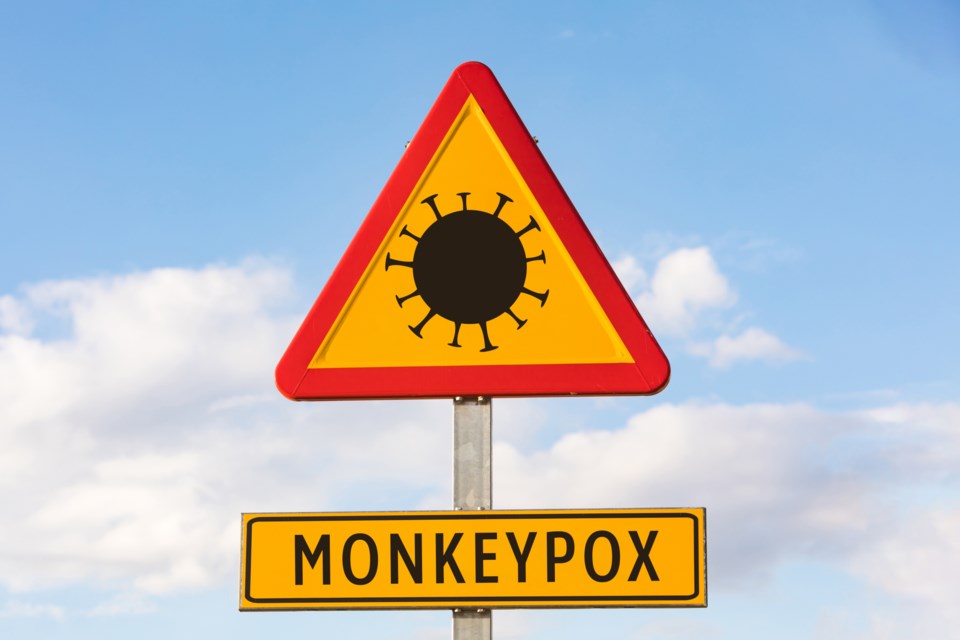A document published by the World Health Organization last May 2022 details the various modes of transmission for monkeypox, as well as how to can be prevented. To quote, “Scientific studies are now underway to assess the feasibility and appropriateness of vaccination for the prevention and control of monkeypox”. This essentially means one thing: they do not yet know if vaccination can actually stop the spread of monkeypox. Why then would you take the vaccine if its efficacy has not yet been proven?
Meanwhile, in a document released by the US Centers for Disease Control and Prevention, there are currently two vaccines that can be used for monkeypox. The first one, ACAM2000 contains a live Vaccinia virus and was developed for smallpox. According to the CDC, “The virus growing at the site of this inoculation lesion can be spread to other parts of the body or even to other people. Individuals who receive vaccination with ACAM2000 must take precautions to prevent the spread of the vaccine virus”, which means that the people who receive this become carriers of the virus. When does the virus stop growing? And when is it safe for ACAM2000 vaccinees to interact with other people?
ACAM2000 is also known to cause myocarditis and pericarditis and could lead to serious health problems for unvaccinated people who are exposed to those who received the vaccine. The FDA has also determined that the vaccine should not be given to individuals who have a weakened immune system – the same people who are at high risk of serious disease if infected by monkeypox.
- https://www.fda.gov/vaccines-blood-biologics/vaccines/acam2000-smallpox-vaccine-questions-and-answers
The second monkeypox vaccine, JYNNEOS, is a “live virus that is non-replicating”. Unlike ACAM2000, it does not develop lesions at the site of vaccination. It is approved for use as pre-exposure prophylaxis for those who are at high risk of monkeypox exposure. Like ACAM2000, it is not risk-free, though the known risks associated with JYNNEOS is currently limited because it is a much newer drug, approved only in 2019. [It remains a mystery why the US FDA would approve a drug for a disease that was effectively “eradicated”, and which does not occur naturally in the country, but that is a topic for another article].
- https://www.rxlist.com/jynneos-drug.htm#side_effects
- https://www.fda.gov/news-events/press-announcements/fda-approves-first-live-non-replicating-vaccine-prevent-smallpox-and-monkeypox
Now the question is: who is at risk of monkeypox? Well, for one, the cases in Europe identified in May 2022 were found to have been spread primarily through sex. If your partner has no monkeypox, then there is very little chance you’ll get it.
- https://www.cnbc.com/2022/05/23/monkeypox-outbreak-is-primarily-spreading-through-sex-who-officials-say.html
- https://www.science.org/content/article/why-the-monkeypox-outbreak-is-mostly-affecting-men-who-have-sex-with-men
- https://www.cdc.gov/poxvirus/monkeypox/transmission.html
Other ways that monkeypox can be spread are through respiratory secretions through prolonged face-to-face contact such as kissing and cuddling, touching items that previously touched the infectious rash or bodily fluids, and eating meat or using products from an infected animal. All of these risks are easily manageable.
So while we understand that most people might be paranoid and would want to take precautions against monkeypox, we want people to remember that monkeypox is a self-limiting disease with symptoms typically lasting only 2 to 4 weeks. Even with monkeypox, your best defense is still a healthy immune system, not a vaccine.
Moreover, as of June 24, 2022, there have been no deaths due to monkeypox recorded.
- https://www.reuters.com/world/africa/monkeypox-emergency-decision-due-who-sparks-african-criticism-2022-06-23/
And while the new “monkeypox emergency” is due to the spread of the disease in the Western world, it is surprising how most images on the media are still using images from Africa, where the disease is now endemic.
- https://qz.com/africa/2169315/using-black-peoples-images-for-monkeypox-in-media-draw-backlash/
- https://abcnews.go.com/Health/wireStory/african-scientists-baffled-monkeypox-cases-europe-us-84878241
This brings us now to an important question: is the new “monkeypox scare” another attempt at selling the vaccine? Or is it a continuation of the WHO power grab?
- https://childrenshealthdefense.org/defender/corrupt-pharma-monkeypox-scare/
- https://childrenshealthdefense.org/defender/monkeypox-global-health-power-grab/
Finding the answer to these questions is important, particularly since COVID vaccination continues to be rolled out despite being useless and unnecessary. Are governments simply desensitizing us to more Big Pharma propaganda?
- https://mb.com.ph/2022/06/29/us-medical-experts-call-for-omicron-specific-covid-boosters/
- https://mb.com.ph/2022/06/28/covid-19-booster-vax-for-minors-helpful-in-exit-from-pandemic-concepcion/
- https://mb.com.ph/2022/06/28/doh-readies-covid-19-booster-shot-guidelines-for-non-immunocompromised-adolescents/
- https://newsinfo.inquirer.net/1618594/doh-covid-vaccine-wastage-within-acceptable-limit
